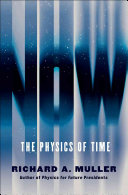2018 School Spending Survey Report
Now: The Physics of Time
Norton. Sept. 2016. 352p. illus. ISBN 9780393285239. $27.95. SCI
COPY ISBN
VERDICT This volume is best for those who are already familiar with physics and who want to jump straight into the problem of studying time. Novices would do better to read some of the works of Neil deGrasse Tyson, such as Death by Black Hole: And Other Cosmic Quandaries.
RELATED
ALREADY A SUBSCRIBER? LOG IN
We are currently offering this content for free. Sign up now to activate your personal profile, where you can save articles for future viewing




Comment Policy:
Comment should not be empty !!!